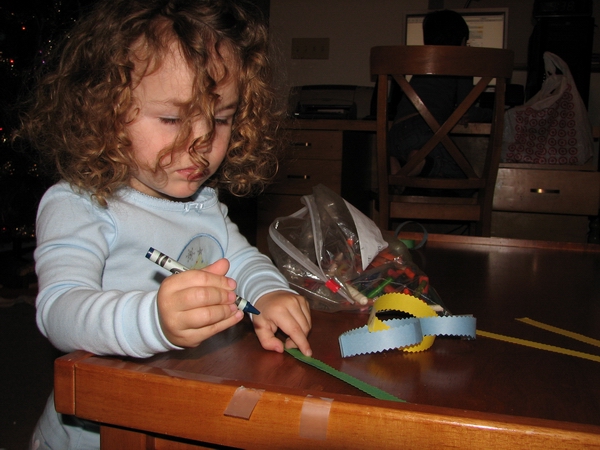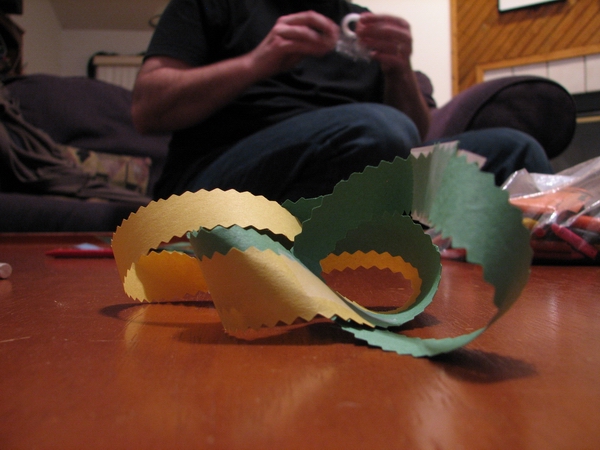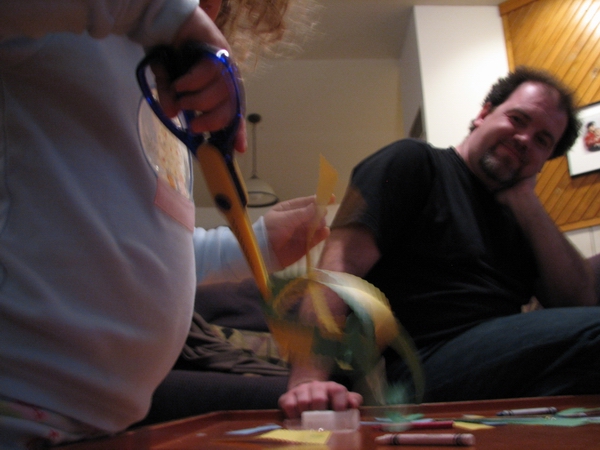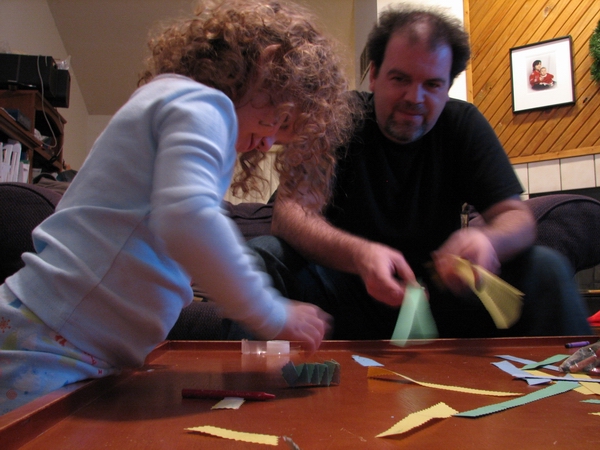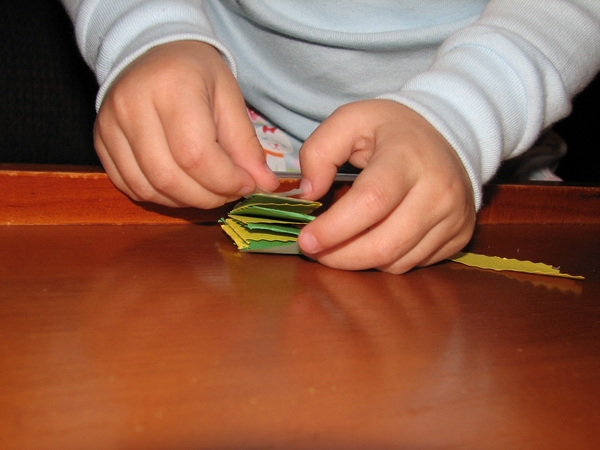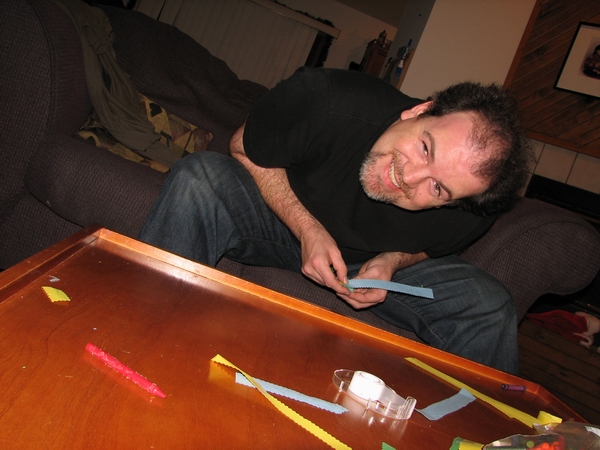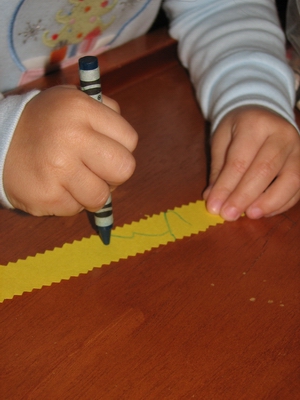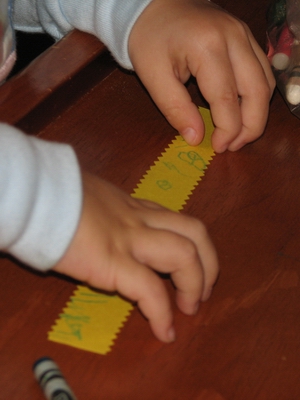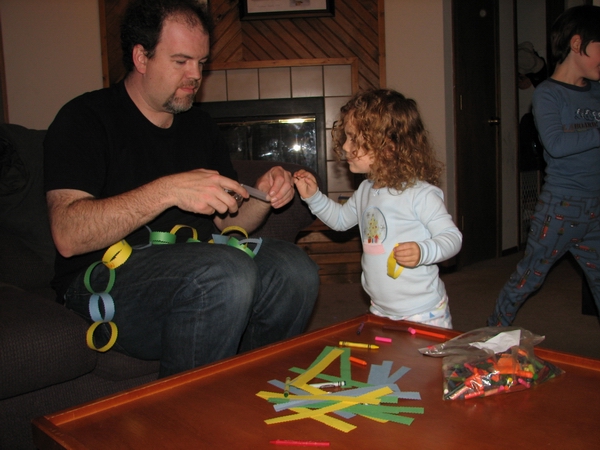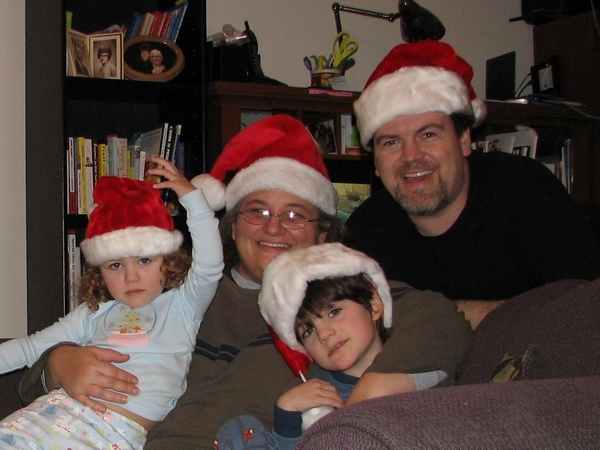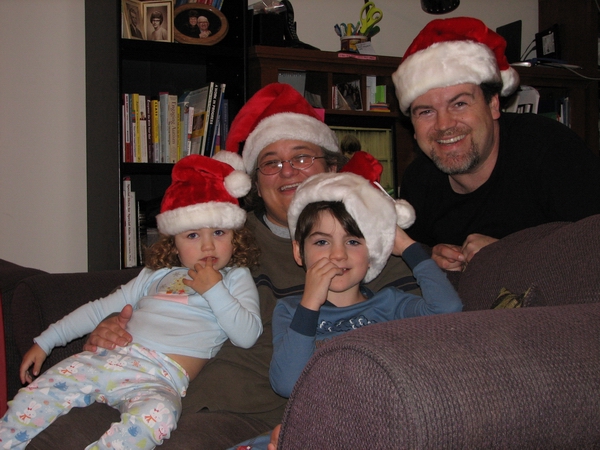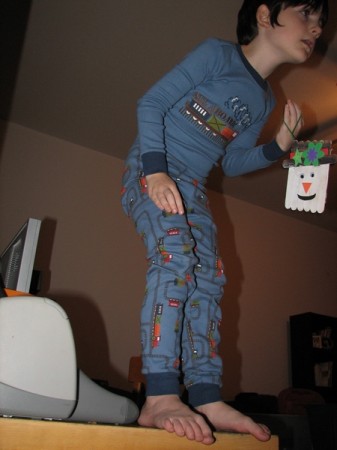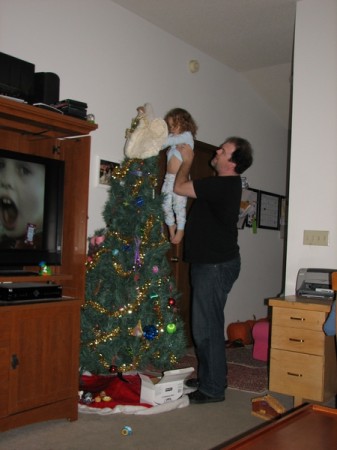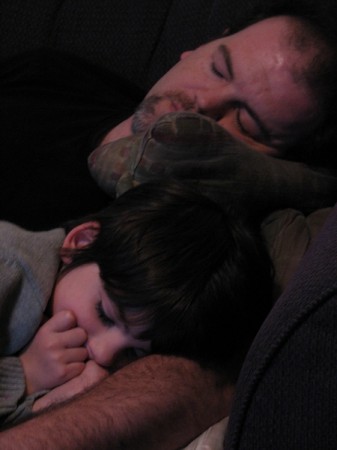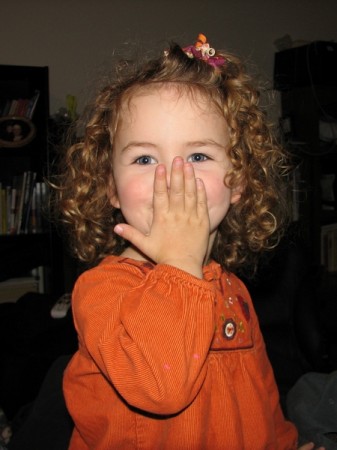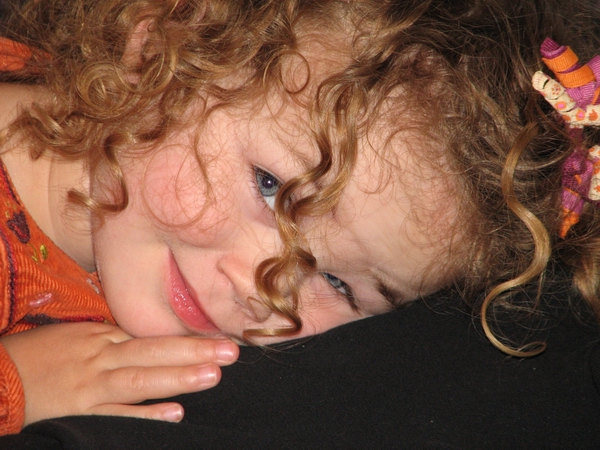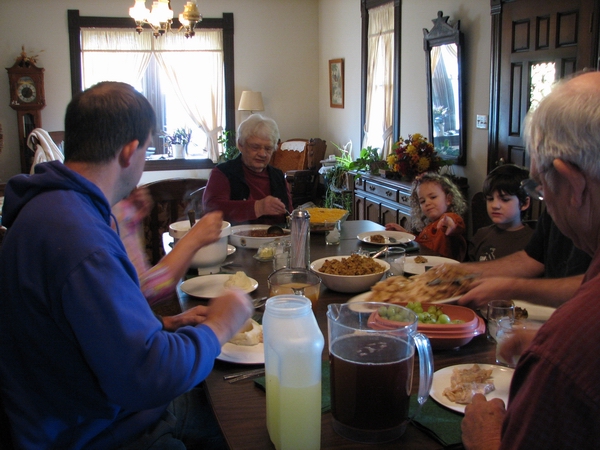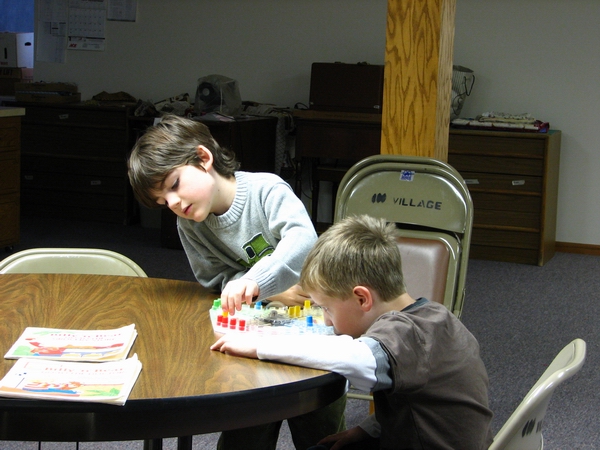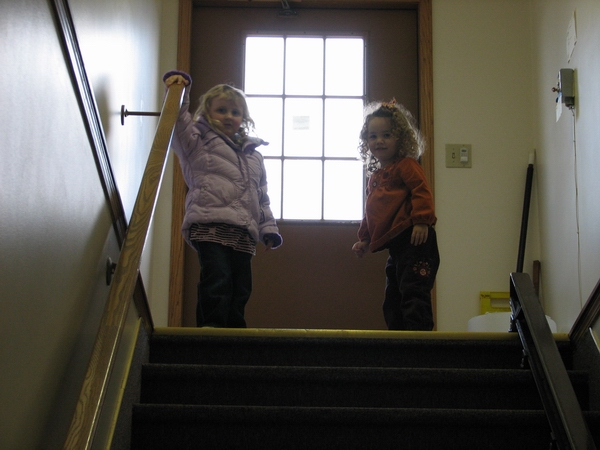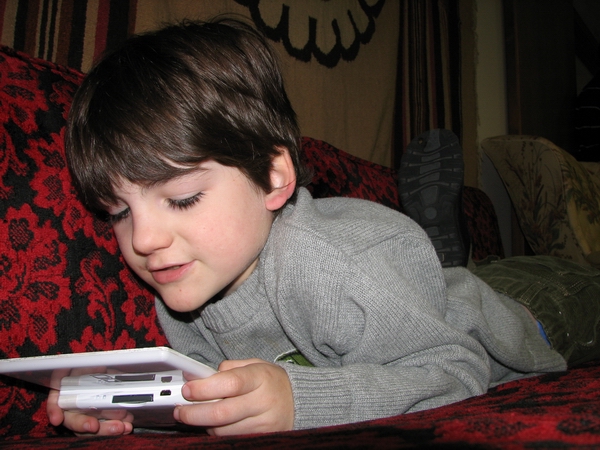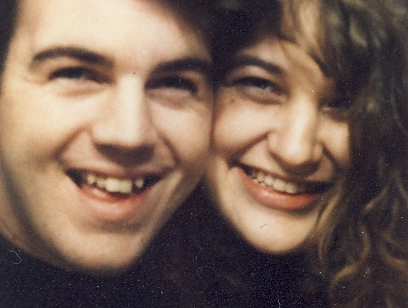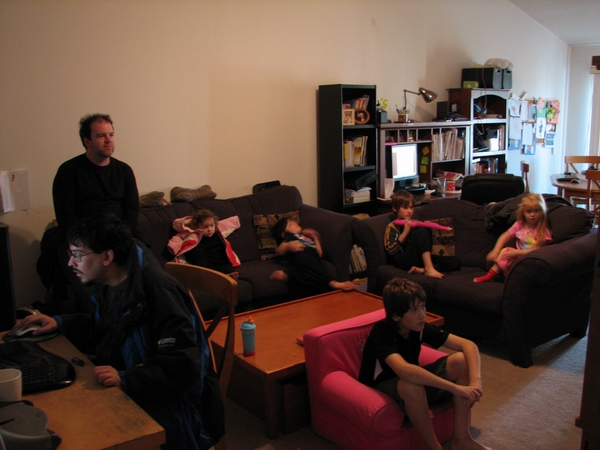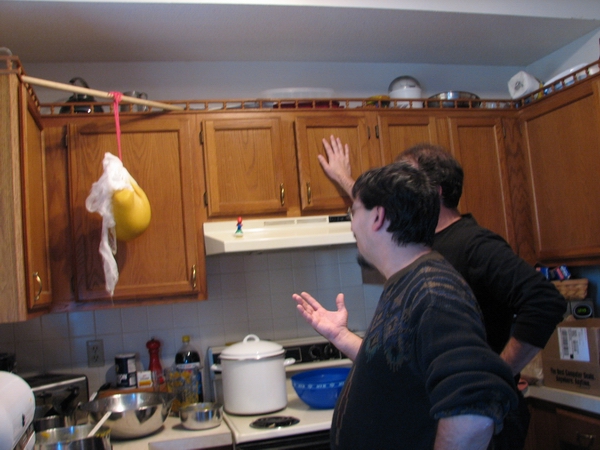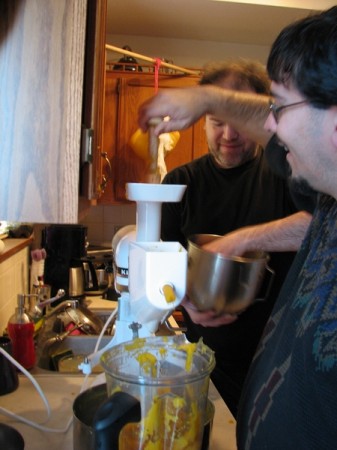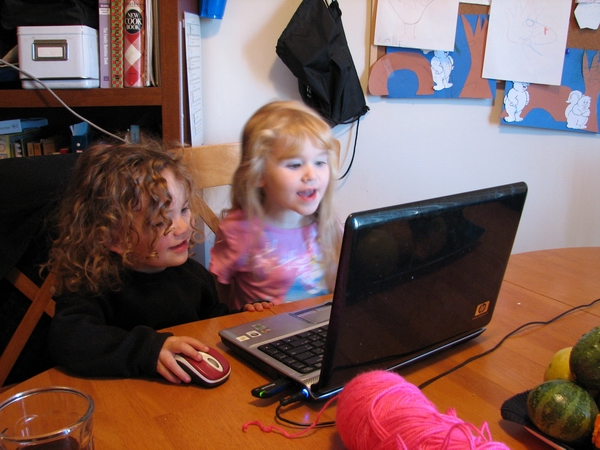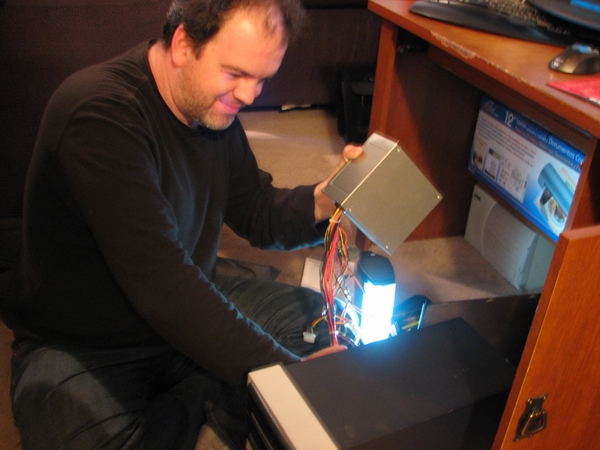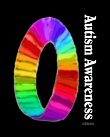We get speech at two different places: Heartsprings twice a week with a professional SLP (20 minutes…way too short in my opinion), and WSU twice a week with a student SLP under the direction of a Clinical Educator (a professional SLP). That one is an hour session, which is much more appropriate to me.
The student SLPs are, naturally, still learning and often pretty rough around the edges, especially at the beginning of the semester. Usually, by about halfway through the semester, they are pretty good, even if they started out making me want to bang my head against the observation window in the beginning. Every semester until this one, it was just a matter of trying to find that balance between having a good lesson plan and remembering that the session is about the kid, not the lesson plan. (something that I myself struggled with when I started homeschooling Zane, so I can really relate at how difficult it is to stay in the moment when you are trying to direct learning on a specific topic). The underlying personalities, although very different from each other, were all pretty engaging and were able to develop a good rapport with Zane. They learned to read him well enough to keep him engaged and learning.
I had high hopes at the beginning of the semester. The person assigned to Zane was not only a parent, but had been a social worker who worked in the Juvenile system for years. She had qualifications far above any other student I have had before. The first sessions were pretty rough, but I assumed it would get better, like in my previous experience, because the CE always gives good direction and helps them see where to tweak things to make it more effective.
Over the years, I have actually gone from just watching Zane, to watching the SLP students and learning how to improve my own teaching skills and ways to teach some of the concepts and scaffold learning for him. I knew how Zane was going to react usually, but learning from a professional the theories and techniques they use has been incredibly valuable. Teaching communication issues is a whole different ballgame than teaching math for me. Math is easy. It doesn’t really require verbal language, and can be taught, and learned, with just visual language. Teaching language and communication, both verbal and non-verbal, is much more challenging to me. It forces me to think in new and creative ways. I would love to take some of the classes they take, but you can’t aske for a better classroom than the real life lab I live in. lol. I would still have a lot to learn if I ever had to teach different kids, but I am becoming a serious expert on how to teach Zane, and a lot of that information would be applicable.
Unlike other semesters, this student didn’t take direction. At all. She does things that don’t have anything to do with the goals (which are not written willy-nilly), she made it ALL seem like work (not that it has to all be play based at this age, but it shouldn’t be such drudgery either), and she somehow managed to have a flatter affect than Zane. You know what, it takes some effort to have a flatter affect than an autistic kid who is really working on stuff he doesn’t enjoy. After I watched her a while, it also occurred to me that if this were a professional situation, where she is expected to be alone with children for the session (especially in school settings where there aren’t observation mirrors), I would not be comfortable with her being my child’s therapist. There was something about her that made me think she could just snap at any moment. It might not be fair to make that assessment, but my instincts had kept me at the observation window all through the semester, despite Zora’s protests, instead of walking around the building and goofing off with Zora when she didn’t want to be in the observation area any more.
On the plus side, she did teach me a lot this semester. It really helped me to tweak my own teaching to see, in living color, why you do certain things and how much less effective and less fun it is for him when those things aren’t in place. It really taught me the importance of proper scaffolding and keeping him engaged. I also learned how important it is to let Zane know what was expected of him. She would give no indication of how many more trials she was going to do and he (or those of us observing) would sit there wondering when certain sections were going to end.
I was also impressed with how much Zane has matured. In past semesters, some of the things she did would have had him screaming and, literally, under the table. If she had been his person in previous semesters, it would have been completely pointless because she barely had any control as it was, and she didn’t even have him leave the room the entire semester if I recall correctly.
The frustrating part was that I didn’t feel comfortable really telling her how I felt because I just had a feeling that Zane would be the one who paid for it. I tried to positively reinforce the few things that were going right, and gently comment on things that could be changed to make things go more smoothly, but she wasn’t really listening to me either. (or she was hearing what she wanted to hear, not what I was saying). I am usually pretty assertive too, which made me even a little surprised at my own reaction. I felt like I was back in “small town” mode where you maintain a ridiculous amount of civility because you know you have to work with the people later, even if you want to just blast them.
For whatever reason, she was pulled as Zane’s therapist this week. I don’t know the particulars, and I don’t need to know, but I am relieved. Although I feel bad for her, because I am sure she is a nice person, I really sort of hope that she is out of the program too. It is one thing to be inexperienced and rough around the edges, but if you are unwilling to take direction and learn, you really shouldn’t be working with kids in a professional setting. These kids need you to be constantly striving to improve and modify your methods, even if you have been doing it for 30 years. If you aren’t willing to take direction at 2 months into it, it is pretty certain you aren’t going to be seeking to improve yourself years down the road. Nobody knows everything there is to know about a subject, at any level. As soon as you think you do, you should get out.
So, now I get the Clinical Educator as the interim therapist, and a new student is basically going to start their Spring semester early and get in a few hours at the end of this semester. (they have to get a total number of clinical hours in several areas to graduate). It is sort of a mess, but I really love the CE and don’t mind this transition AT ALL. (in fact, I would love it if she were the therapist, but she became a CE to have a more broad effect than 1-1 with kids, so I know that it won’t last, but I will enjoy it while it does).
It is a great program, and I really love the academic environment, but great programs have to self-correct to keep up the quality. Not every person is going to make it in this field, and it is MUCH better to figure that out at this level than after they get into the school system. (where a large portion of STs find work) If it was going to happen, I am glad it happened with me because I have had enough good experiences there to have the patience to see it through. It also happened at a time that helped Zane in other ways…tolerating a less than ideal environment being one. He wouldn’t have had the maturity to handle it sooner, and this helped him learn to cope with it better. It is a sort of sucky way to have to learn it, but a valuable lesson none the less.
